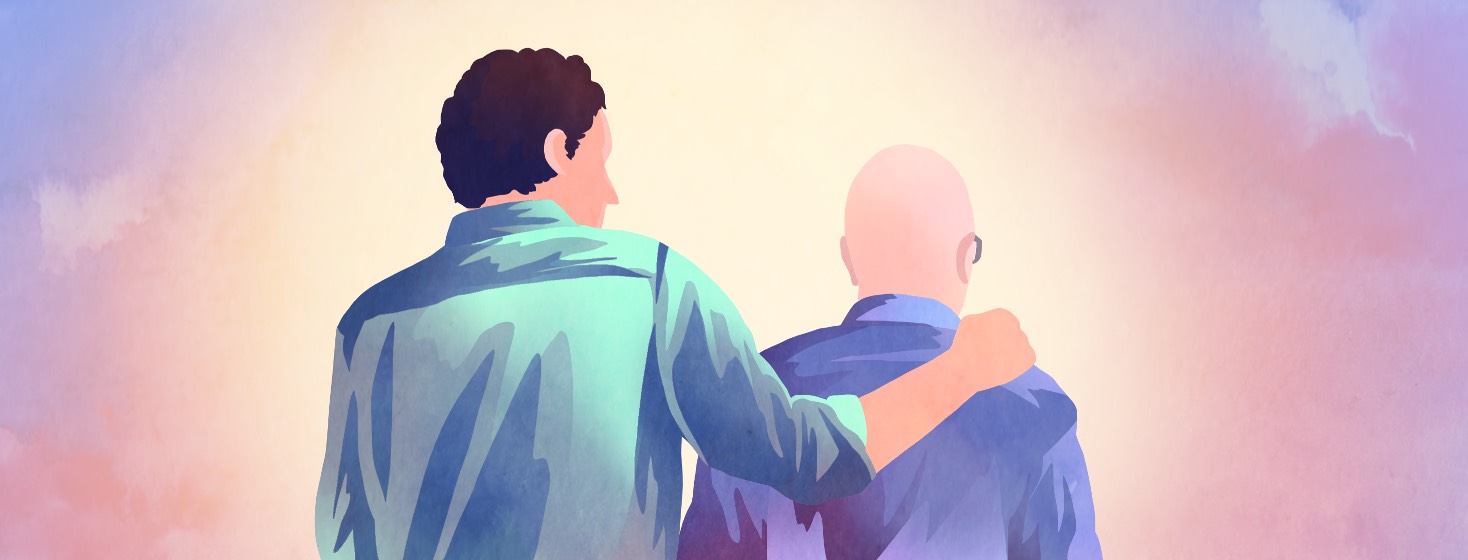Not Your Father's Treatment
The catheter bag was by the inside of my father's right thigh, dangling just above his knee, because it was not yet fully secured. Fumbling a bit, he guided two plastic straps around his thigh to secure the bag, then slowly raised his loose-fitting khakis, which almost perfectly concealed the encumbrance.
“Are you ready to get out of here?” I asked my father, pretending not to have noticed what just occurred. Dad had been diagnosed with Gleason 4+3 prostate cancer roughly 3 months before, and was quite ready to leave the hospital following his prostatectomy.
“You bet. I didn’t like being here very much!” he said, paraphrased, because his actual response was much longer, and was ladened with lots of colorful language and run-on sentences. “Let’s get you out of here” I mustered.
My dad chose surgery quickly
I always had great respect for my dad. In 1929 at age 5, he came to the United States from Germany, leaving one bad economy for another. Somehow he survived a new country and language, the Great Depression, and even World War II, which included an early morning landing at Omaha beach. Then he ultimately completed law school, helping to ensure that his only son wouldn’t have to deal with things like that. I owe him everything. He was my hero, but my hero had a salty exterior, honed from his many life experiences.
I was not involved in dad’s treatment decision, which was made quickly: surgery was his choice. He spent more time looking for a surgeon than he did evaluating treatments. Now, with his surgery deemed a success, dad left the hospital in good spirits. But those spirits didn’t last.
Difficult side effects
Dad quickly shed the catheter, but his urinary continence never returned. “What does the doctor say about that?” I asked, bracing for his response. “I don’t like that doctor very much!” was a small part of dad’s colorful reply. The other part was that the surgeon claimed that nerves would be preserved, but when that didn’t happen, the surgeon became known as “the butcher,” though an unfair assessment.
"'Do kegel exercises,' the butcher says, but I don’t like those very much!" was next. "Hang in there," I said, expecting and receiving another earful. “Easy for you to say”, he colorfully said, among other things. We had many similar exchanges over the years, which caused despair of my own. If only I could do more for him than just listen and say things that he sometimes thought were too easy to say.
Falling into depression
The journey ahead had good days, but it was forever affected by dad’s “diapers.” He was very disappointed about needing them and was reminded of this whenever he changed one. He didn’t like them very much, and he made sure that we all knew that. His disappointment became actual depression, straining his relationship with family and friends.
Up to 1 in 6 men with prostate cancer experience depression. Cancer-related post-traumatic stress can also occur, and certain factors may make it more likely to happen, like previous PTSD. I later learned that dad had recurring dreams of his time on Omaha beach and wondered how that may have affected him post-surgery.1,2
How his experience affected my decision
Having seen all of this first-hand, surgery to treat prostate cancer was not high on my list. There had to be a better way.
Fortunately, when hearing of my diagnosis, friends suggested that I learn about proton therapy. I took their advice, later selected it, and to date have had great success. I chronicled my experience in a 3-part series called, “Proton Therapy, What’s the Catch?”
I am also a huge advocate of PSA screening and early detection, and hope my experiences can guide my son to a position of strength, should he ever face the disease. My article, “With Love to Brett, My Unfortunate Son” attempts to accomplish that. Finally, I counsel against making quick decisions about prostate cancer treatment, like my dad had made.
Looking back on his surgery
Though the aftermath of his surgery was often trying, dad was able to treat his depression successfully, he restored his most important relationships, and he lived to see both of his grandchildren graduate from high school over 20 years later. In retrospect, the surgery really was a success. But if he were to read this article, I know he’d say, “why did you write all those things about me, I don’t like that very much!”

Join the conversation